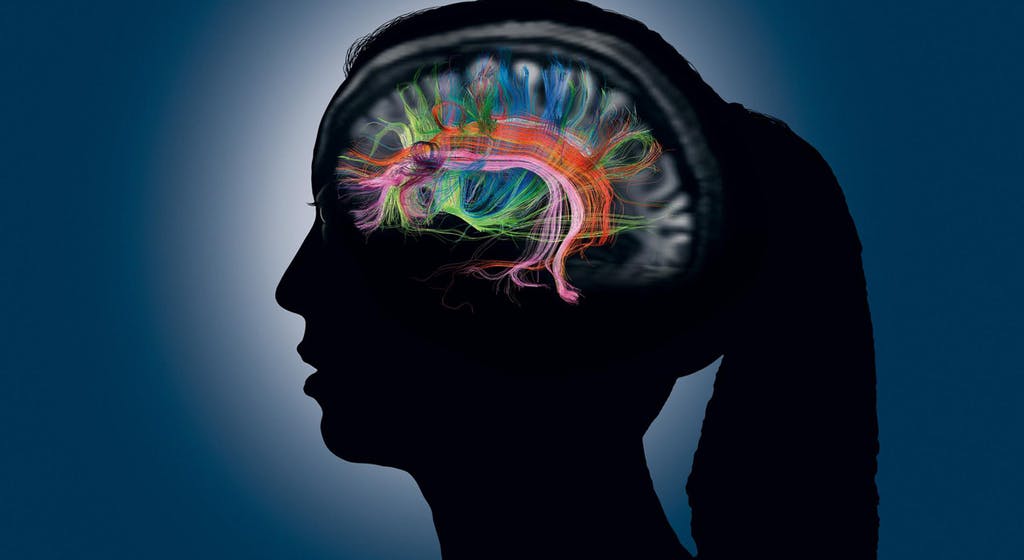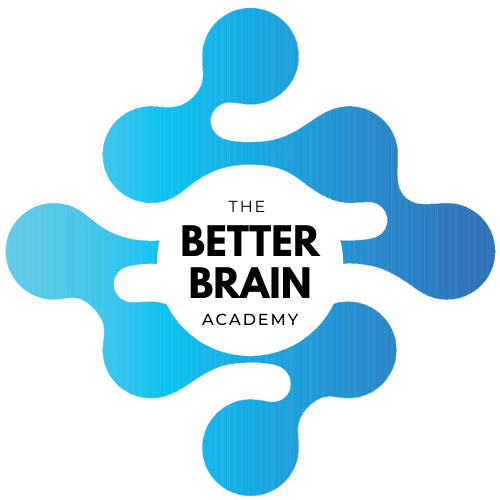
By Cindy Shaw
•
21 Sep, 2020
Since the first outbreak of COVID-19 earlier this year, people across the globe have been experiencing feelings of anxiety, panic and stress as a result of the pandemic. The changes in lifestyle, uncertainty around work, and the stream of unsettling media reports from around the world have all been factors in this heightened global anxiety. While a certain amount of anxiety is totally understandable and natural given what is going on in the world, coronavirus has caused what is being called a “global amygdala hijacking”, which causes people to respond irrationally to stimuli that doesn’t warrant an overly emotional response. What is the Amygdala? The amygdala is a mass of grey matter in the brain. It is around the size of an almond, and the word amygdala actually derives from the Ancient Greek word for almond. Even though we tend to refer to the singular ‘amygdala’, there are actually two amygdalae, as one can be found in each cerebral hemisphere. The amygdala makes up part of the limbic system, which is in charge of aspects of emotions and memories. It is considered to be involved in generating feelings of anxiety and fear, which can in turn lead to panic attacks, and is the part of the brain that triggers the ‘fear response’, which can manifest as the well known symptoms of a racing heartbeat, shortness of breath and feelings of impending doom. How people respond to feelings of panic and fear depend on the activity levels of a person’s amygdala. Those with a low activity amygdala are able to combat feelings of fear easily, and tend not to overthink or catastrophize situations. Meanwhile, those with a hyperactive amygdala will find themselves regularly succumbing to anxiety and panic attacks, and ruminating about things going on that are out of their control. If you have an overactive amygdala, it’s likely that you have been feeling extremely anxious during the pandemic, and have opted to stay inside more than others, in order to avoid having to go out and put yourself in danger. However, even those with a usually sleepy amygdala have been subjected to an amygdala hijacking during the past few months. We may know people in our lives that are usually level headed and rational, but suddenly are too afraid to leave the house! This is due to the activity levels in their amygdala increasing, making them renounce their rational judgment and composure. How can we combat global amygdala hijacking? Check in regularly with your thoughts using mindfulness. Doing regular check ins with yourself will help you to catch negative thoughts before they have the opportunity to run wild in your brain. Each day, spend time to practice mindful thinking. Mindfulness is more than just a buzzword in the brain health industry – practicing mindfulness every day has been shown to have life changing benefits to your brain health and happiness! Mindfulness is the state of being conscious or aware of something (such as your thoughts). There are many different ways you can practice mindfulness throughout the day, without even trying! Here is an easy Mindfulness exercise that you can practice daily to soothe a hyperactive amygdala: 1. Sit in a quiet space and close your eyes. 2. Become aware of your body sitting on the floor or chair – notice how your body feels. 3. Take a few deep, mindful breaths. 4. As you continue to breathe, notice any thoughts that come to your mind. 5. Acknowledge these thoughts, and thank them for being there. 6. Imagine these thoughts as clouds, and visualise them floating away, out of sight. 7. Spend 5-10 minutes on this exercise each day. If you find it difficult meditating like this, there are lots of other ways to practice mindfulness throughout the day. Make your daily chores mindful by paying attention to each step of the task (smells, sounds, movements). This can also be applied to activities such as eating and walking. Get clear on what is in and out of your control. While the pandemic sweeps the world it can be hard to feel in control of our safety, which in turn can make our amygdala more active as it perceives a great threat. This feeling can cause intense feelings of fear, panic and catastrophizing the situation. Getting clear on what we can and can’t control during this time and accepting this can go a long way in soothing a hijacked amygdala. A good way to practice this is to write 2 lists – the things you can’t control and the things you can control. This will help to highlight how much of your life you are actually in control of. Here are some examples that you could write down: Things you can’t control: - Other people’s social distancing. - Other people’s mistakes. - The ideas and beliefs others have about the pandemic. - The future. - How long the pandemic will last. Things you can control: - You decide how much news content you consume. - Your mental attitude. - My own social distancing. - Taking steps to ensure good hygiene. - Finding things to do while at home. While it is scary accepting that there are things you can’t control, realizing that you can be in control of your reactions and your attitude to situations can help you feel calmer and more rational. Challenge your negative thoughts. One of the most effective ways of combatting amygdala hijack is by challenging the negative thoughts you experience. Anxious thoughts lie to us – they take a situation and make us believe that we are in a highly dangerous situation. It’s about time we start calling out our thoughts, and taking back control of our amygdala's and our lives. By practicing mindfulness, as we spoke about earlier, we can start to monitor our thoughts. Are there any recurring negative thoughts that are causing you stress and anxiety? Start by questioning those – ask yourself: - Am I catastrophizing? - Is this a possibility or a certainty? - What is the worst that can logistically happen? - What would I tell a friend who had this thought? - Is this a fact or a belief? These questions should help you to realize that your thoughts are not certain facts, but simply beliefs stemming from a place of fear. When we can accept this, we can dissipate anxiety and our amygdala activity is dialed down. Also as part of this process, you could try finding evidence for your belief. Consider a belief that you have that is currently causing you stress and anxiety. Challenge that thought by asking yourself what evidence you have for believing it. Example: ‘If I leave the house, I will catch Covid-19’. Evidence: - Covid spreads quickly - Lots of people have contracted it - Other people don’t follow guidelines Now, create a new belief that balances your previous belief. What evidence do you have for this new belief? Example: ‘If I leave the house, I will be okay’. Evidence: - I will socially distance - I will wear a mask and gloves - Only a minority of the population currently have Covid-19 Balancing your thoughts is an effective and easy way of reassuring your amygdala that it doesn’t need to produce a fear response as there is very little chance of danger. Consider the good happening. The main reason for the current global amygdala hijacking is the overwhelming atmosphere of fear and anxiety in the world at the moment. While this is understandable in the current circumstances, the never ending negative talk from friends, family and news outlets make it hard to block the noise out. One of the best ways of protecting our amygdala from hijack is to balance the negative news with the good that is also happening. We can do this by spending a little time each day to focus solely on the good things that happened in our day, and what we’re grateful for. Start your day with gratitude. As soon as you wake up, before checking your phone, consider three things you’re grateful for. You can do this either by saying them in your head, out loud, or writing them down. The act of writing your gratitude list can be a therapeutic ritual that sets you up for the day. The effect that gratitude has on the brain is astounding – when we take time to feel grateful for the things in our life, the brain releases dopamine and serotonin, which are the neurotransmitters responsible for our emotions. These ‘feel good hormones’ have an instant effect, making us feel happy and calm. At the end of the day, right before you go to bed, consider three good things that happened during your day. Our brains have become so used to only focusing on the things that makes us feel fearful and anxious that we are unable to see the positives. Even though it can be hard to find good in the world given many recent events, there are always little things happening in our life that we can appreciate. These things can be as little as: - Taking your dog for a walk - Having a fun group call with friends - Making a delicious meal - Watching your favourite TV show - Sitting in the sun Limiting your news consumption can also help you focus more on the good. If the facts, stats and stories are activating your amygdala, turn off the news and research good news articles. This will help to soothe your amygdala as it will restore your faith in the world, and make you feel safer and more calm. Keep the basics in check. While monitoring your thoughts, practicing relaxation techniques and learning gratitude can help soothe a hijacked amygdala, it’s essential that we have the basics in check when it comes to our brain health. The basics include lifestyle aspects such as diet, sleep and exercise. Foods that have been proven to calm the amygdala include: - Fatty fish eg. Salmon (high in omega 3) - Fermented foods eg. Yoghurt - Eggs (high in vitamin D) - Dark chocolate - Teas such as chamomile and green You may also choose to supplement your diet by taking a dietary supplement. Vitamins and minerals known to reduce anxiety and the fear response include: - Magnesium (this can be taken in pill form or by taking a magnesium bath) - Vitamin B (primarily B12) - Fish oil capsules It is also imperative that those with a hyperactive amygdala get the right amount of sleep a night. Aiming for 7-9 hours will give your brain time to heal, which is essential if you have a busy amygdala. Sleep deprivation is one of the leading causes of anxiety, as it activates the areas of the brain involved in emotional processing. This can then lead to excessive worrying, and your body will enter into the fight or flight response quicker. In conclusion, even though we are currently experiencing a global amygdala hijacking due to the Covid-19 pandemic, we all have the power to control our amygdala's and not give in to fear. Through training our brains, controlling our thoughts and looking after our brain health, we can placate the activity of our amygdala's not to become overwhelmed by external stimuli. While it may seem like everything is currently out of our control, the way we respond to fear and adversity is always within our control.

By Headways Performance Group
•
04 Dec, 2019
As a business leader, it is important to maintain a healthy lifestyle to ensure your mental game is performing at its best. But, what happens if you get an injury? A tweaked back, sprained ankle, broken arm, or blown out knee. We all know someone who is suffering from some sort of injury and facing down weeks of recovery. It can be troubling if that person is you as work still needs to be done and people managed. Imbalances in your musculoskeletal system such as injuries can be related to your brain and mental health. You may not realize the role inflammation plays in your body and how it can spread when an injury occurs. Once inflammation reaches your nervous system it is known as neuro-inflammation and is a major risk factor for depression, anxiety, and can cause an inability to cope with stress. As your injury heals, your mental health can start to slide and you could be left feeling anxious, depressed, and fatigued. Luckily, there are steps you can take to help keep your body and brain healthy to prevent injuries that can sideline your professional career. Ditch the Sugar Eating breakfast within one hour of waking is going to help your body and prevent your blood sugar from dipping into the hangry territory. By eating first thing in the morning you will help keep your energy and mood nice and steady. This means you will be able to concentrate and perform better in the first part of your day. Once you’ve trained yourself to eat breakfast, shift your focus to making sure you choose real whole foods as often as you can. Always have a carb with healthy fat and/or protein that keeps your blood sugar in a healthy range. Think oatmeal, quinoa, sprouted grain bread, eggs, or even sweet potato pancakes. Eat More of the Right Fats Your body and brain need fat. You can calm inflammation with omega-3 fatty acids EPA and DHA, which can reduce stress on both your body and brain after an injury. If you want to be proactive, consider keeping your baseline inflammation as low as possible to prevent another injury by regularly ingesting these fats. EPA and DHA are found in fish like wild salmon, halibut, trout, and black cod. If you are allergic to fish or do not enjoy it, you can get EPA and DHA from algae or choose to get the ‘parent’ omega-3 fat ALA instead. This can be found in walnuts, hemp, chia, flax, and pumpkin seeds. Supplement this with a good-quality fish oil or algae oil to keep your brain power up and your inflammation down. Add Collagen to Your Routine Protein is needed to repair and build new muscle and it is key for immunity and brain health. It can be difficult to find a good quality protein powder and there is a lot of confusion these days about collagen and whether or not it can replace a protein powder. Collagen is the most abundant protein in our body. It improves recovery from exercise, enhances the bone mineral density and helps build new muscle. It is really great for overall health. Unfortunately, it declines with age, increasing our susceptibility to injury. Collagen isn’t a complete protein: it is low in leucine and tryptophan so it is important to find a sustainably sourced collagen to work in conjunction with your high-quality protein powder. Your protein should be plant-based, clean-burning, fermented and sprouted, and offer 20g of protein per serving. Nourish Your Gut If your brain is highly stressed and boy inflamed, you will be more susceptible to injury. Science tells us that our microbiome can help regulate stress by activating the HPA axis and its release of chemicals. If you have friendly gut bugs, you will see an increased role in the maturation, morphology, and function of microglia (those special brain cells that aren’t neurons but rather their helpers), which control neuro-inflammation. With lots of probiotic-rich foods and prebiotic, you can grow a thriving gut. Throw in a good-quality probiotic supplement and you will be set up for success. Start incorporating these tips into your life and you’ll begin to take back some control over injury prevention. This will ensure you are working at your best at work, in life, and for the long term.

By Headways Performance Group
•
22 Nov, 2019
If I told you that you could apply neuroscience to business by optimizing an organ would you be interested in making a change? The benefits could result in an increase to your bottom line, a better corporate environment, and a more productive workforce. If you don’t immediately want to jump on this idea, it’s time to re-evaluate your idea of success. Improving your brain health and the brain health of your employees can have drastic consequences. It just takes the right tools and guidance. Optimized thinking requires a healthy brain, something most of us actually don’t have. We’ve all heard that a healthy brain requires hydration, sleep, nourishment, and exercise, but there’s more beyond that to maintain optimization. If you want to improve resilience and performance, we recommend that leaders work on the following: Neuroplasticity Your past experiences have shaped and moulded your brain to favour certain behaviours and habits. But unfortunately, those habits may not be optimal. By focusing attention on new practices, including desirable behaviours, leaders can redirect their brains’ chemical, hormonal, and physical resources to create new pathways. The old ones, in the meantime, will wither and fade from lack of use. If you want to optimize your brain it starts with learning, particularly an attention-heavy subject like a language or musical instrument. This is the best way to enhance plasticity. You will be forcing your brain to pay attention and work at something it hasn’t experienced before. This will make your brain more flexible, which can help things like being able to regulate your emotions, solve complex problems, and think more creatively. Brain Agility If you want to be nimble, you must think nimbly. Brain agility is the ability to switch seamlessly among different ways of thinking; from logical to intuitive to creative. Agility is extremely important to leaders and entrepreneurs as they are tasked with diverse situations regularly. If your brain is agile, it will be able to absorb diverse ideas quickly, spot trends, pivot, and ultimately be ahead of the curve. It’s proven that multitaskers who try to use several modes of thinking at once generally do less well at all of them. It’s recommended that you work on problems consecutively, looking at them from different angles. Leaders can also use this to leverage different thinking styles within their teams. Mindset Leaders with fixed mindsets believe traits like talent and intelligence are settled. Leaders with growth mindsets see themselves as works in progress who continuously develop their intelligence and talent through hard work. A fixed mindset leads to stagnation, while a growth mindset leads to innovation and progress. If you are a leader with a fixed mindset, you should implement neuroplasticity to help move towards growth. For entrepreneurs, this should be fairly easy as you already have an appetite for risk and an attitude toward failure. Change is something that entrepreneurs are attracted to. Simplicity We need to realize that limited brains make it impossible to keep up with our hyperactive world and the demands can be overwhelming. Stress, decision making, and life, in general, can easily overwhelm a brain that is not optimized. Luckily, there are some very simple techniques that can help reduce stress. Practising mindfulness is extremely important for leaders and entrepreneurs. Focusing on your body, breathing, and thoughts can quickly reduce stress hormones and multiply folds in the part of the brain associated with executive function. Leaders who have learned to improve their brain function can then easily apply those lessons to their companies. For example, by creating a cross-functional work program to help employees, employers can help their staff develop brain flexibility as they master unfamiliar knowledge and skills. They can also use their understanding of the brain to drive fear and stress out of the workplace and to develop trust. When stress occurs it spikes cortisol in the brain, which in turn negatively affects thinking and the ability to control emotions. When these are at sustained levels, people go into survival mode. By contrast, if you provide an exciting environment where you have the hormone oxytocin flowing, employees are more likely to make decisions that are not based on survival. As a result, innovation and risk-taking flourishes. If you found this article useful but need help implementing these ideas into your business we can help. At Headways Performance Group we offer Learning Labs which are designed to teach invaluable strategies to increase focus, energy, presence, and engagement. Visit our website to learn more about how we can help you and your business flourish and staff optimize their brains https://www.headwaysgroup.com/learninglab .

By Headways Performance Group
•
13 Nov, 2019
Defining success can be different for everyone, especially those who are entrepreneurs or business leaders. Talk to anyone in a high-level position and they will tell you that taking care of their mental and brain health are top priorities for success. A 2016 study of more than 52,000 managers by McKinsey & Company found that 86% of managers rate themselves as inspiring and good role models. But, in that same study, 82% of employees said they see their leaders as fundamentally uninspiring. According to researchers, this isn’t because of a lack of effort and investment into leadership training, but rather, because we are not focusing on the problem; the mind of the leader. Think of yourself or your manager, do they have all the technical skills, but lack the ability to understand organization and culture? This is very common, and the starting point to create strong leaders. In the book The Mind of the Leader by Jacqueline Carter, her team surveyed and assessed more than 30,000 leaders from 1000s of companies in more than 100 countries, as well as reviewing 1000s of studies on leadership. They found three essential qualities that stand out as being foundational for leaders: mindfulness, selflessness and compassion, or what they call MSC leadership. Mindfulness Being mindful allows leaders to be attentive, present, and helps them to motivate the people they lead. Research has found that we are distracted from what we do 47% of the time. We’ve lost focus on the present and allow ourselves to be consistently distracted. Attention deficit has become the norm for many business leaders. If we are not focused, we can’t do anything well. Our brains are wired for distraction, so we need to be proactive and now allow this. Researchers have found a direct correlation between people’s focus level and how fast and high they rise within their organization. According to the data collected by Cater, the vast majority of leaders possess an above-average ability to focus. But, that being said, 90% of leaders believe that more reflection time would enhance their mental clarity. Selflessness Having an understanding of selflessness can help leaders get out the way and provide space and support to their employees so they can thrive. If leaders have an ego, they have a problem. Researchers say that people with higher leadership positions use significantly more pronouns like ‘we’, ‘you’, and ‘your.’ While people with lower leadership or no leadership tend to use ‘I.’ Compassion Studies have shown that leaders at a truly human level who have compassion are seen as being trustworthy and having their employees’ best interests in mind. According to researchers, on average, higher-ranking leaders have greater levels of compassion for themselves than mid-level managers. By leading yourself with compassion, you will have a greater chance of leadership success. And it all begins with taking care of your mind, brain, and body. When all three qualities are combined, they enable a stronger sense of meaning, happiness, connectedness, and contribution. Once this is enabled, a leader can work at their best potential and that can be translated into success in your business.

By Headways Performance Group
•
06 Nov, 2019
At some point or another, during our everyday lives, we find ourselves faced with situations where we are left out or rejected. Be it at work, from friends, or even with your partner. For some, it can take a long time to move past rejection while others regain their calm more quickly. Have you ever wondered why this might be the case? A new study may have the answer to that question as it provides preliminary evidence that mindfulness may be linked to our response systems. Researchers surveyed 40 undergraduate students asking them about their mindful awareness; specifically how receptive and attentive they typically are to events and experiences in the present moment. The students played an online game while their brains were scanned using an fMRI. During the game, three players tossed the ball to each other, but after a few tosses, the other two players excluded the students. The participants were told the players were real people located in other rooms, when in fact, the interactions were actually pre-programmed. Researchers found that students who were naturally more mindful reported feeling less distress than others did about being rejected. Ultimately, they found that individuals with increased mindfulness may be able to more effectively regulate negative emotions. According to the study, results of the fMRI showed more mindful students had different levels of activity in their ventrolateral pre-frontal cortex (VLPFC). The VLPFC is the lower-frontal part of the brain that helps regulate negative emotions, especially after social rejection. It is a bundle of neurons that helps to keep emotions in check and “in control.” The study showed that more mindful students’ VLPFCs were less active compared to less mindful students’ when feeling excluded. It’s important to note that more active VLPFC’s do not always lead to better emotional regulation. Studies have shown that overstimulating the VLPFC may sometimes cause a person to “lose control.” It can actually be energy-taxing to use excessive effort to control our emotions or consciously change them by thinking of a situation differently. Having thoughts such as “why am I so mad? This shouldn’t really upset me, I need to be calm” can eventually make our VLPFC too tired to keep inhibiting emotions. While trying to think our way of negative emotions may seem like a good idea, it may actually result in the opposite desired reaction. It can be a draining process that leads us into rumination or to completely fail at the goal we hope to achieve. A better way to deal with rejection and negativity is to take a more mindful approach to feelings. Letting them arise and then pass could be the best way to cope, according to the study. Another great reason to adopt a mindful lifestyle and to practice each and every day. You can learn more about mindfulness and gratitude from our past blog posts.

By Headways Performance Group
•
30 Oct, 2019
The word gratitude is used often in mainstream media, but most people don’t really understand what it means and how it can benefit your life in the long run. Evidence suggests that the practice of gratitude can help you feel happier, improve brain health, and help with issues related to depression and anxiety. How gratitude actually works on our minds and bodies is not definitive as more research needs to be conducted, especially on subjects who are not well functioning. According to UCLA’s Mindfulness Awareness Research Center, there are some psychological benefits worth incorporating into your daily life. By regularly expressing gratitude, it will change the molecular structure of the brain, and keep the gray matter functioning, which makes us healthier and happier. Researchers at the National Institute of Health (NIH) found that subjects who showed more gratitude overall had higher levels of activity in the hypothalamus. This is important because the hypothalamus controls a huge array of essential bodily functions, including eating, drinking, and sleeping. It also influences your metabolism and stress level. This evidence suggests that gratitude has wide-ranging effects from increased exercise and improved sleep to decreased depression. Feelings of gratitude directly activate the brain regions associated with the neurotransmitter dopamine. Dopamine feels good to get and is generally considered the ‘reward’ neurotransmitter and is important in initiating action. Simply put, increases in dopamine make you more likely to do the thing you just did. The brain is saying, “oh, let’s do that again.” Your brain likes to fall for the confirmation bias, and it looks for things that prove what it already believes. Once you start seeing things to be grateful for, your brain starts looking for things to be grateful for, creating a virtuous cycle. Ways to Practice Gratitude: Keep a gratitude journal (you can check out the one I wrote at: headwaysgroup.com/shop) Tell a friend, employee, or family member something you appreciate about them Look at yourself in the mirror and think of something you like about yourself Write a thank-you note Sit in a quiet place and think about something that went well. Practice that feeling every day for a week. Take note of how it makes you feel Next time something bad happens, consider five good things that happened as a result. Remember, like anything else, gratitude takes practice and if you want to reap the benefits, you need to practice daily until it becomes routine and second nature. Try to think of one thing every day that you are grateful for, no matter how small it is. I know that I am grateful that you read this article all the way to the end!

By Headways Performance Group
•
21 Oct, 2019
We tend not to notice when our memory is working at peak performance, but it is very noticeable when it isn’t working well or is failing. While no one knows exactly how memory works, there are a number of issues that can contribute to memory decline including: Stress Poor lifestyle Lack of exercise Poor circulation Overweight or obesity Poor nutrition Lack of sleep Head injuries If you suffer from any of these things, there’s good news as it is possible to avoid or alleviate these issues. No matter how you’ve treated brain health in the past, there are ways you can improve your memory over time by following an improvement plan. Here are 6 tips for restoring Brain Health High-quality Nutrition When it comes to getting healthy, preventing illness, or losing weight, the quality of your food matters significantly more than the quantity of it. If you count calories, do you take into consideration what you are eating? A 500-calorie pastry compared to a 500-calorie plate of fish, vegetables, and fruit is going to serve you very differently. One will flood your body with sugars that drain your energy and damage your tissues. The other will provide you with nutrients that supercharge your brain, and help decrease your risk of premature brain decline. Make sure you are eating foods that are packed with the nutrients you need and that can be effectively digested and absorbed. Stay Hydrated Did you know your brain is mostly composed of water? It’s important to avoid anything that dehydrates it - such as drinking too much caffeine or alcohol. If you keep your brain hydrated it will help optimize its potential in tasks that require attention, focus, immediate memory skills, and performance at school or work. New Learning It’s important to set aside some time every day for new learning. Learning something new such as a sport, musical instrument, or language can help stimulate your brain. When the brain stops learning, it starts dying, so be intentional at learning new things. Nutritional Supplements One of the best ways to promote the healing process is with brain directed supplements. It’s important to take pure, clinically proven vitamins and nutrients that are essential for your overall health. These can help improve energy, focus, and memory. On our website, under the ‘Shop’ button, we have a number of great supplements to consider adding to your daily routine. **Always consult your doctor or naturopath before starting any supplements. Coordination Activities Doing a few coordination activities can go a long way! Consider taking up tennis, dancing, or swimming - it will boost activity in the cerebellum. While the cerebellum is only 10% of the brain’s volume, it contains about 50% of the brain’s neurons and is involved with both physical and thought coordination. Be Mindful One of the best ways to achieve a state of calm is mindfulness. This can be done through yoga, tai chi, meditation, or other mindfulness exercises. It can help reduce depressive and anxious thoughts while increasing focus. People tend to ignore mindfulness because it doesn’t burn calories like aerobic activities, but it is just as important. Studies show that it can help improve your brain and memory by just practicing for a few minutes every day.
Copyright 2023
All Rights Reserved
The Better Brain Academy
The Better Brain Academy
Kelowna, BC Canada
250-575-7741
THE FINE PRINT
While there may be information on The Better Brain Academy website relating to certain conditions, should a medical condition exist, promptly see your own physician or health provider. The Better Brain Academy does not offer medical diagnosis. Information presented is for educational purposes only and is not intended to provide or replace medical advice. The Better Brain Academy makes no claims that it can cure any conditions, including any conditions referenced on its website or in print materials, including ADHD, anxiety, depression, traumatic brain injury, post-traumatic stress disorder, stress, sleep disorders, Alzheimer’s and dementia. If you take prescription medications for any of these conditions, you should consult with your physician before discontinuing use of such medications.



